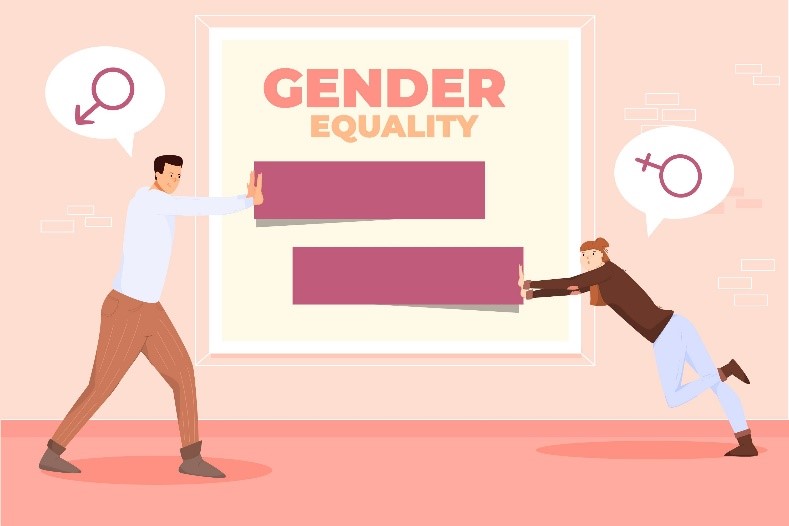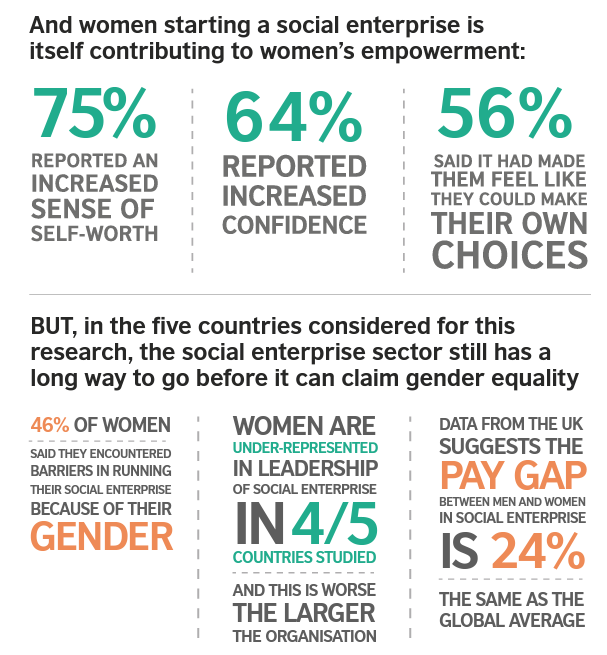Gender equality is one of the European Union’s priorities since 1957. In 2019, after the European elections the issue of gender equality made it back on to the political agenda with strong support from the first-ever female Commission President, Ursula von der Leyen who indicated that “equality for all and equality in all its senses” is necessary to be established in the Union. However, gender equality has only slightly improved in recent years. In fact, the EU scored 68 points (out of a possible total of 100) in the 2021 Gender Equality Index published by the European Institute for Gender Equality (EIGE). This is an improvement of just 0.6 points over 2020.
Now, let’s think about positions of leadership and power. The examples and cases of men in these positions are many more compared to women working in the same position. As a result, women are less likely to run a business or be in positions of leadership. This leads to a culture where young girls and women are not encouraged to develop entrepreneurial skills or pursue leadership positions. However, social entrepreneurship can help change this situation.
Social enterprises against gender inequality
Social entrepreneurship differs from the “traditional” one because its utmost goal is to make a difference in society and/or the environment. Therefore, there are social enterprises that aim to defend women and their rights by tackling gender inequality, especially in developing countries. In fact, in the UK, only 4% of social enterprises focus on women’s empowerment whereas, in India, this figure is 33%. Below, there are some examples to show what already exists and can be used also as inspiration to potential social entrepreneurs.

Based in Liverpool, Blackburne House provides education and training opportunities to local women in areas where they are underrepresented in the workforce, providing the skills they need to live as financially independent. They also provide services that remove barriers to education to support women who face barriers to employment.
Blackburne House run a number of social entrepreneurship initiatives that support their educational mission, including a nursery, bistro, health spa, an events facility, as well as the School for Social Enterprise North West.
Website: https://www.blackburnehouse.co.uk/
Al Alhidn Association
Al Alhidn Association is a nonprofit organisation created for social and cultural development of women, family and childhood in Morocco. The organisation works towards economic and social empowerment of the woman and the youth through a number of projects, including cultural centers for youth, family mediation, special assistance to widows and orphan girls, who have stopped their studies and active advocacy for women and youth rights, nationally and internationally.
Website: https://alhidn.org.ma/index.php/en/home/
Social entrepreneurship as tool for women’s empowerment
Moreover, social enterprise is a really powerful force for women’s empowerment. The British Council analysed in 2017 the impact of social enterprises on female empowerment in different countries and stated that women-led social enterprises could have a big effect on other women’s lives (through education, counselling, health, skill development, job creation, campaigning, affordable childcare, combatting gender stereotypes, accessing finance and giving women a voice in their communities).
In fact, female social entrepreneurs can identify with other women, therefore they can significantly support their self-development and upskilling. These entrepreneurs understand the need for and the lack of mentorship that women go through when they need a new start or a change and they are more likely to help them. In addition, female social entrepreneurs are more likely to hire women and therefore, contribute to gender equality in society. Moreover, according to the same study from British Council, the social enterprise sector offers far greater training opportunities for women, the chances for women to take a leading role are higher and can be used as a powerful source of funding as many women’s rights organisations are underfunded. More results found according to this study can be seen below:

*Countries for this research: Brazil, India, Pakistan, the UK and the USA
From Activist to entrepreneur: The role of social enterprise in supporting women’s empowerment
Yet, as it is shown above, gender is still a barrier, even in the social entrepreneurship sector. However, this should not limit women and their dreams from coming true. Women should transform their ideas and vision into their proper social enterprise, aiming for a change that can improve society and the environment. After all, a new female social entrepreneur is another step closer to gender equality.




